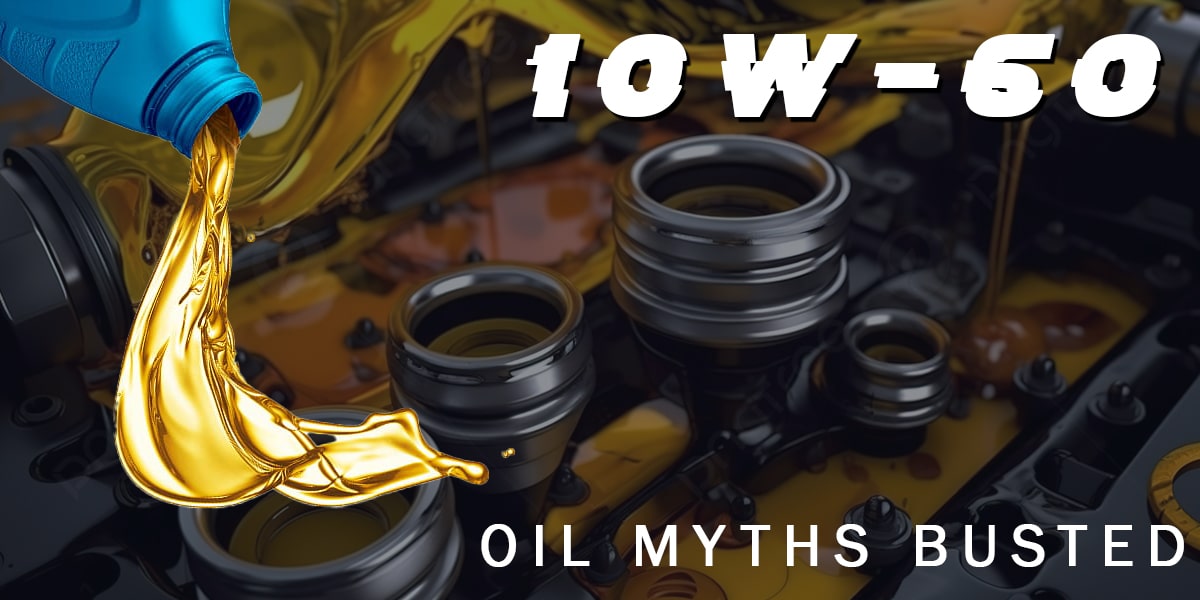Introduction to 10w-60 Engine Oil Use
A common question we encounter is why we sometimes advise against using 10w-60 oil. The simple answer is that we don’t discourage its use universally. This type of oil is highly suitable for certain conditions, specifically for engines designed to handle high-viscosity oils or those significantly modified to require such specifications.
Misconceptions and Appropriate Usage of 10w-60 Oils
Questions about our stance on 10w-60 car engine oils are frequent. To clarify, we do recommend 10w-60 oils but only for engines that are appropriate for this viscosity. This includes several high-performance models like specific BMW M-Series, Alpinas, Alfa Romeos, Aston Martins, and Ferraris. However, using this oil in unsuitable engines can lead to suboptimal performance and potential engine damage.
The Debate Over 10w-60 Oil
The appropriateness of 10w-60 oil for general use is a hot topic in car forums. Despite differing opinions, there is no definitive technical evidence supporting the widespread use of 10w-60 oil in vehicles not specifically designed for it.
Historical Context and Modern Advances in Engine Lubrication
Historically, heavier mineral oils were necessary to manage the high operating temperatures of powerful engines. Modern advancements in chemical engineering have resulted in high-quality synthetic oils that perform effectively at various temperatures without needing increased viscosity. Today’s approach focuses on using synthetic oils with the correct viscosity for high-performance engines, rather than defaulting to thicker oil.
XHYPE: Pioneering Innovations in Engine Oil Technology
XHYPE is at the forefront of developing new and improved engine oils, with products that consistently demonstrate exceptional performance. As an industry leader, XHYPE focuses on creating formulations that not only meet but exceed the demands of modern engines, enhancing efficiency and longevity.
Technical Explanation of Oil Specifications
Understanding oil specifications is crucial:
SAE Number (Viscosity at 100°C): This number indicates how thick the oil remains at engine operating temperatures. For example, SAE 60 oil has a viscosity of 24 centistokes (cst) at 100°C, which is substantially thicker compared to SAE 30, 40, or 50 oils.
Cold Crank Viscosity (“W” Number): This measures the oil’s viscosity at lower temperatures, affecting how easily an engine starts in cold weather.
Effects of High Viscosity on Engine Performance
Using oil with a higher viscosity than required can lead to:
- Increased friction, generating more heat and wear on engine components.
- Decreased power output as more energy is required to circulate the oil.
- Lower fuel efficiency due to the additional energy demands.
Guidelines for Using Thicker Oils
Thicker oil like 10w-60 might be advisable in specific scenarios:
- In heavily modified vehicles that operate at higher than normal temperatures.
- For vehicles used in racing or on tracks, where oil temperatures are consistently high.
- If explicitly recommended by the vehicle manufacturer’s handbook.
Oil’s Role Beyond Lubrication
Engine oil not only lubricates but also plays a crucial role in heat removal from the engine. Thicker oils can hinder this process by reducing the oil flow rate, leading to higher operational temperatures and potentially causing damage through mechanisms like air entrainment and cavitation at high RPMs.
Conclusion: Making an Informed Choice
Choosing the right engine oil involves understanding the scientific principles and specific engineering needs of your vehicle. Following trends or anecdotal advice without understanding the implications can lead to poor performance and engine health. We encourage vehicle owners to make informed choices based on technical data and use resources like our oil recommendation tool to ensure their engines operate optimally with the correct type of oil.



